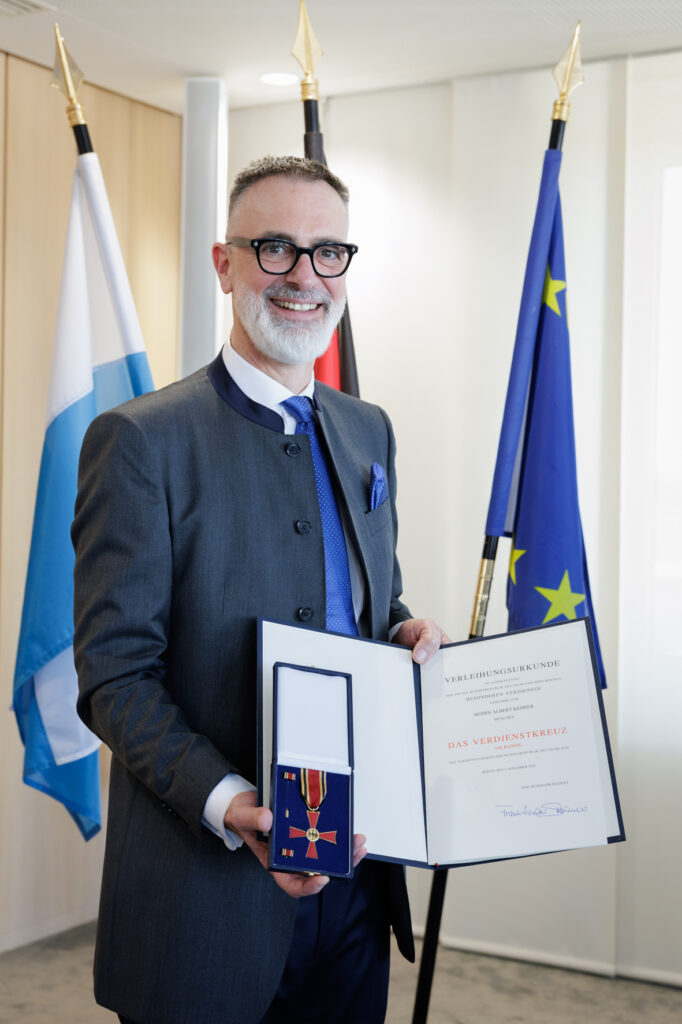
On Thursday, March 20, 2025, the Federal Cross of Merit on Ribbon was presented to Albert Kehrer, CEO of PROUT AT WORK, at a ceremony at the Ministry of Social Affairs in Munich. Albert Kehrer was honored for his long-standing and tireless commitment to queer diversity and equal opportunities in the world of work.
The Order of Merit of the Federal Republic of Germany (Federal Cross of Merit) is the highest recognition awarded by the Federal Republic of Germany for services to the common good. It is awarded to German and foreign citizens for political, economic-social and intellectual achievements as well as for all special services to the Federal Republic of Germany, for example services in the social, charitable and humanitarian fields.
“This award is a great honor – not only for me personally and for the PROUT AT WORK Foundation, but for everyone who is committed to queer diversity and equal opportunities in the world of work. It shows that the commitment and work of PROUT AT WORK is seen and appreciated. Diversity is not a marginal issue, but a strength of our society – and as a board member of PROUT AT WORK, I will continue to work with full conviction for an open and non-discriminatory working world,” says Kehrer.
Albert Kehrer’s career and commitment
Albert Kehrer founded the “LGBTIQ employee network” at IBM back in 2003 and managed it for several years. This network serves as a point of contact for queer employees and their supporters, offers confidential support and sensitizes managers to diversity issues. His commitment promoted the visibility and acceptance of diversity in business and society.
He later worked at KPMG as Head of Diversity & Inclusion for Germany, where he implemented programs for all diversity dimensions. Since 2010, Albert Kehrer has been working as an independent diversity expert, coach and consultant, with a focus on managers. He is listed as an expert by various organizations and has continuously promoted the topics of diversity and queer diversity in the workplace.
Albert Kehrer has also been active on a voluntary basis: he was a board member of “Völklinger Kreis e.V.”, the federal association of gay executives, and founded an initiative for queer employee networks together with Jean-Luc Vey in 2006. This initiative led to the founding of PROUT AT WORK in 2013.
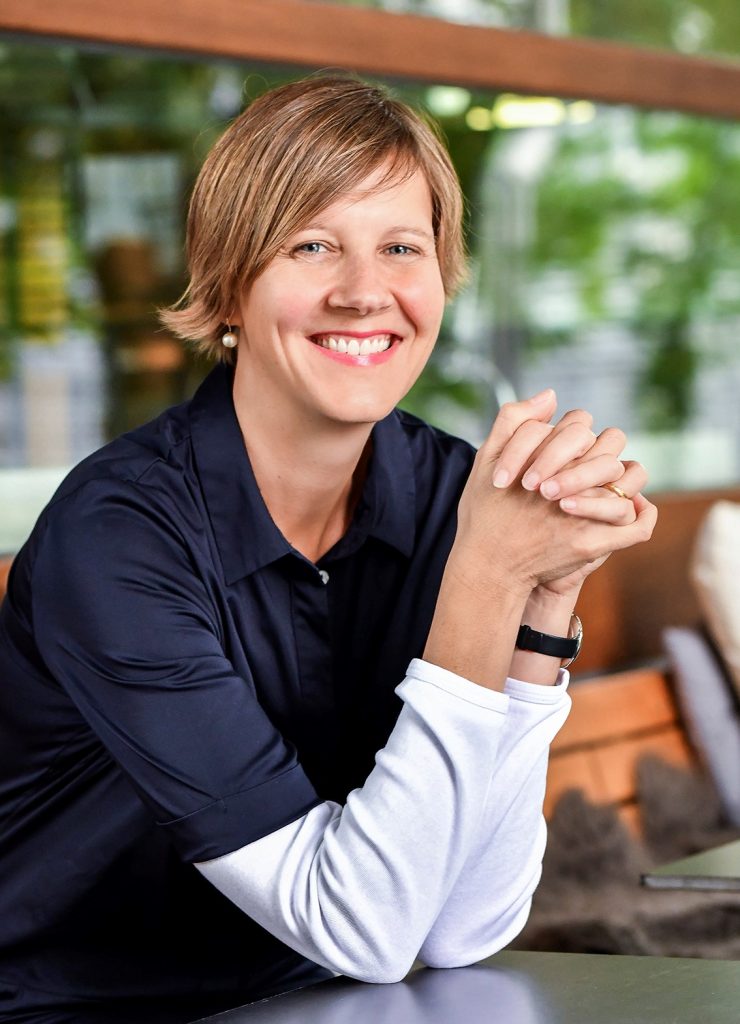
“Through his many years of commitment, Albert has made a valuable contribution to the establishment and further development of queer networks in companies. The award is a strong and important signal that diversity and inclusion must also be seen and promoted in the workplace.” – Dr. Antonia Wadé, Chairwoman of the PROUT AT WORK Foundation Advisory Board
Impressions from the award ceremony
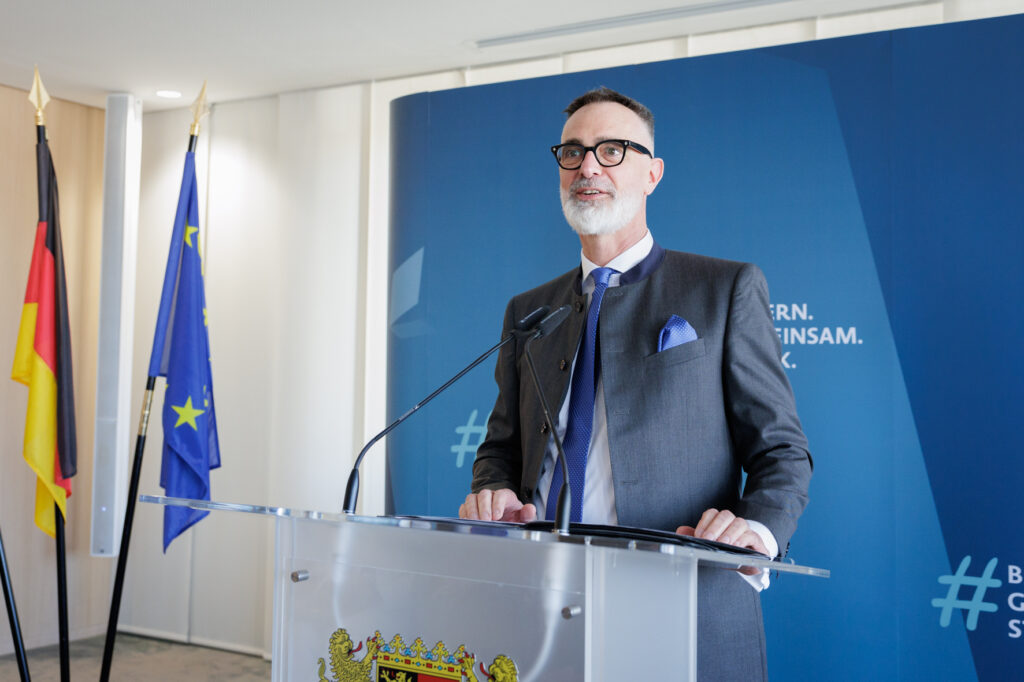
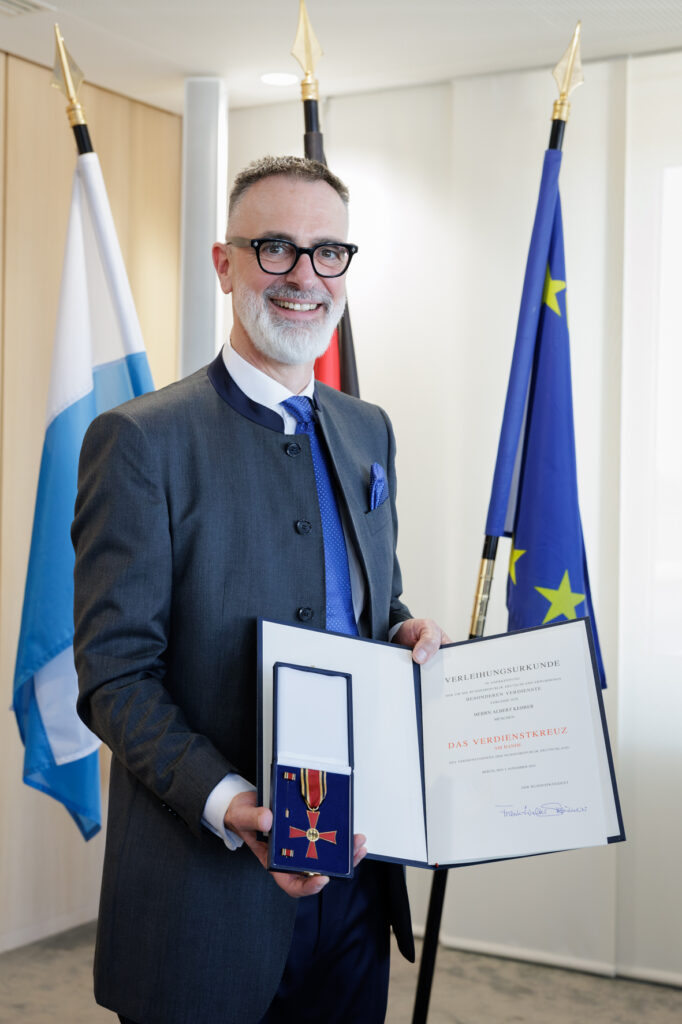
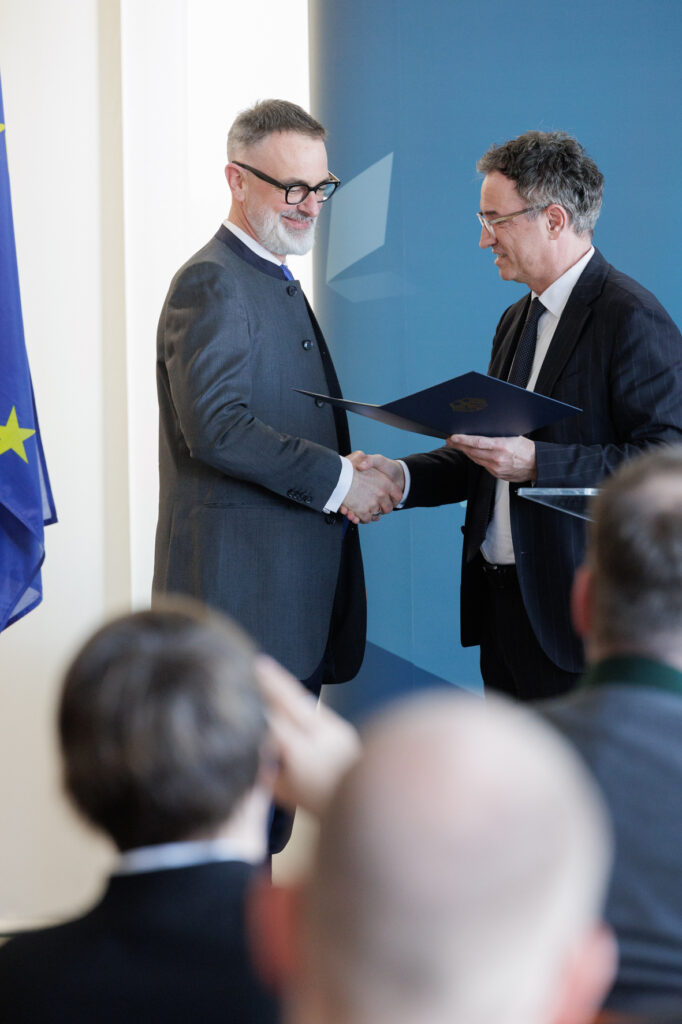
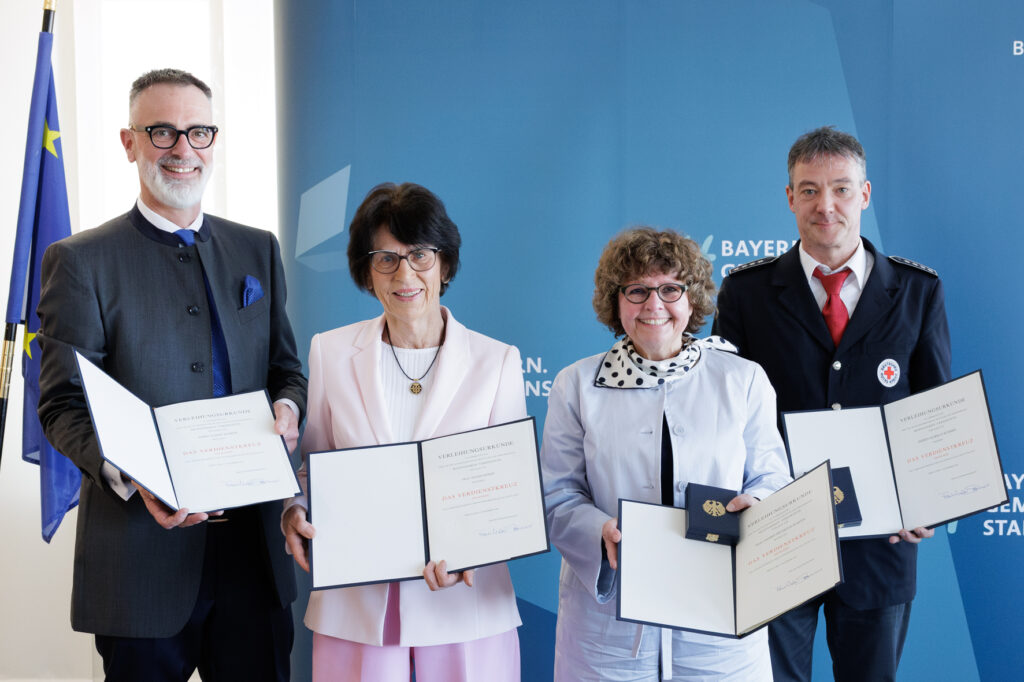
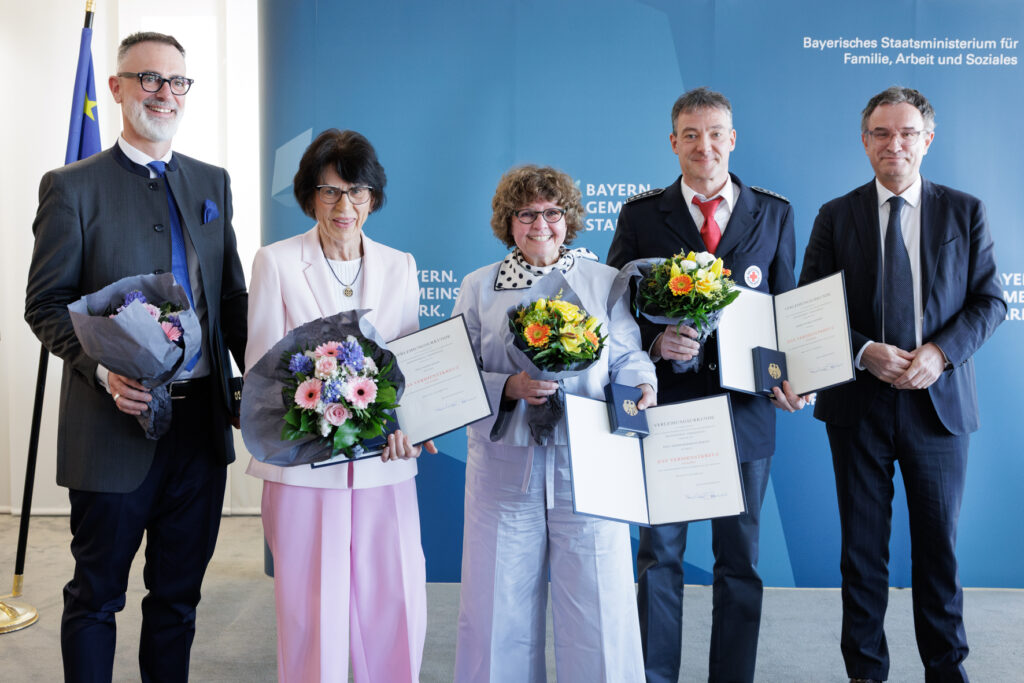
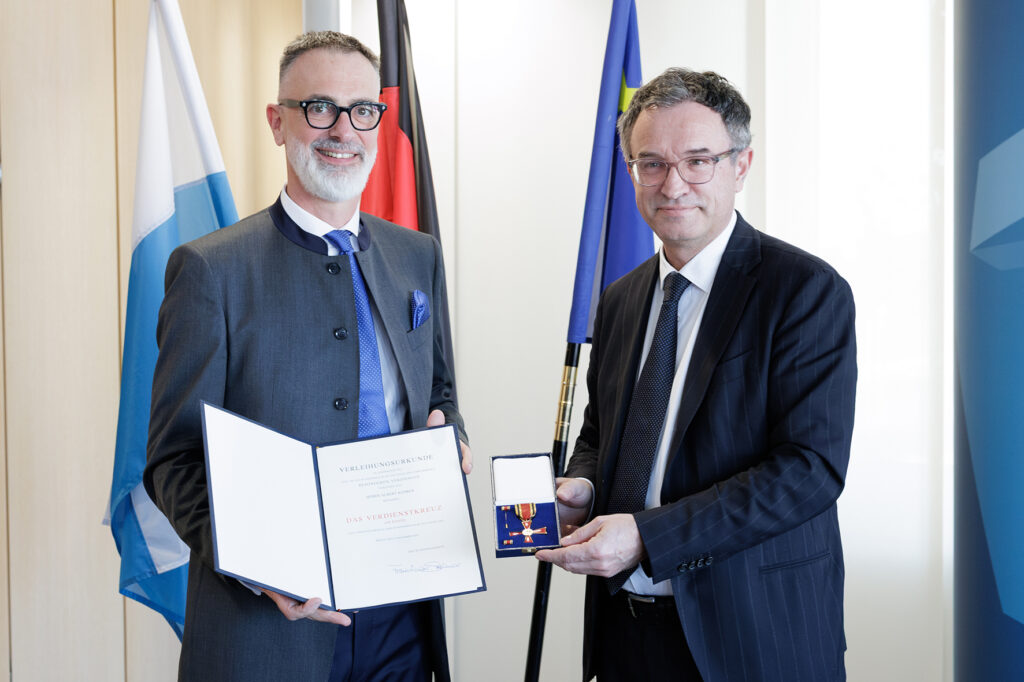
Copyright: StMAS/Schäffler
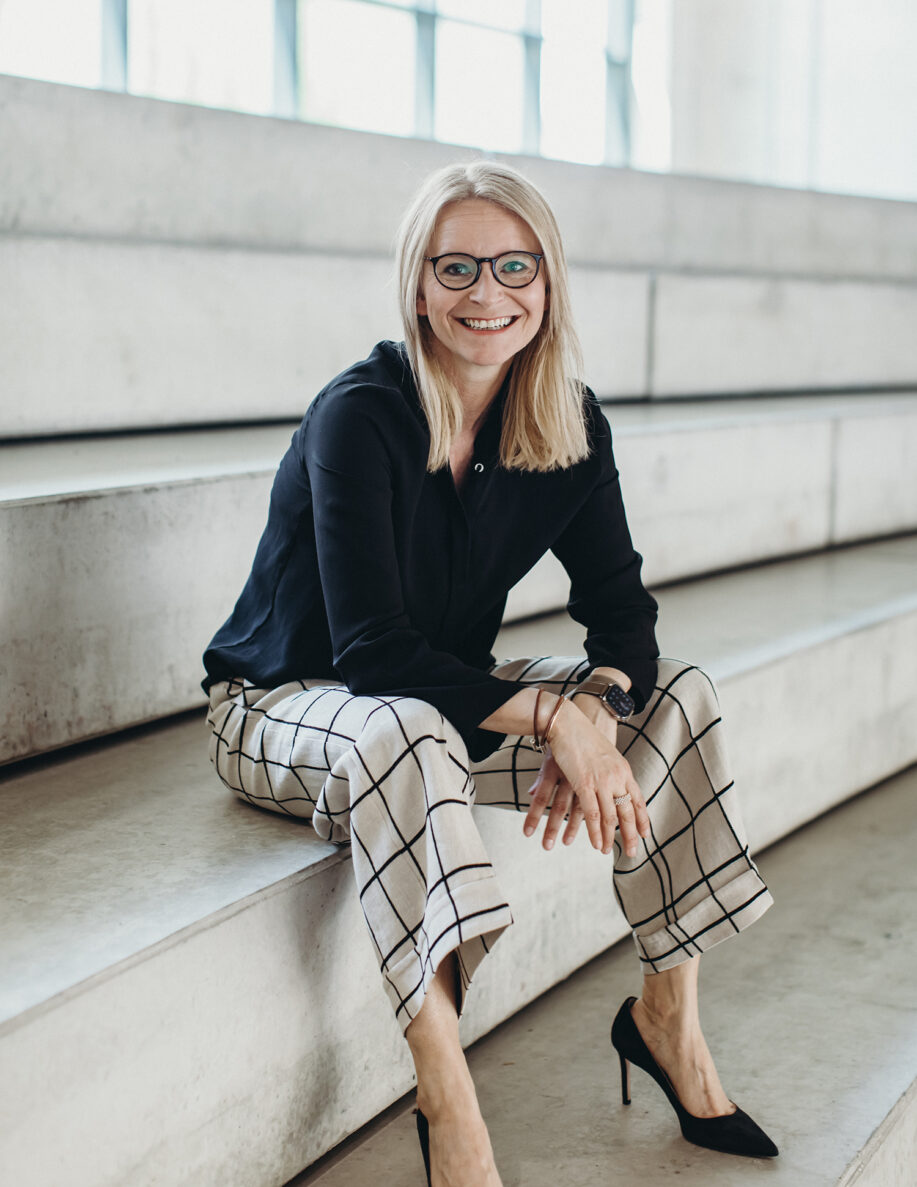
PROUT EMPLOYER o2 TELEFÓNICA
“A workplace where everyone can be their authentic selves without fear isn’t just safe – it enables peak performance and fosters true community.“
Nicole Gerhardt has been with Telefónica Deutschland since August 2017 and serves as Chief Organizational Development & People Officer, overseeing organizational development and the company’s people department. In this role, she takes a holistic view of the organization, its development, transformation, and capacity for renewal, and drives these forward. As the sponsor of the PRIDE Community at o2 Telefónica, Nicole Gerhardt is a strong advocate for a diverse and inclusive corporate culture.
Why is it a matter of the heart for you
to support queer employees?
Nicole Gerhardt: At Telefónica, we believe diversity is the engine of innovation and resilience. Diverse perspectives bring new ideas and strengthen our organization. Queer employees play an indispensable role by expanding our thinking and dismantling barriers. A workplace where everyone can be their authentic selves without fear isn’t just safe – it enables peak performance and fosters true community. And that’s what people are looking for, especially now.
What initiatives do you pursue in your company with regard
to equal opportunities for queer people in the workplace?
Nicole Gerhardt: At o2 Telefónica, we focus on initiatives that create an environment in which everyone can develop authentically. Our PRIDE community plays a central role in this: it raises awareness of queer issues and promotes exchange at all levels of the company. We create concrete structures for equal opportunities through regular training, awareness-raising measures and visible support from the Management Board, including in other dimensions of diversity. Our goal is to actively counteract discrimination, amplify queer voices within the company, and, most importantly, learn from one another while breaking down fears.
What are the next steps, wishes and
goals for queer diversity at Telefónica?
Nicole Gerhardt: It’s not about taking many steps, but the right ones – consistently and with conviction. It doesn’t have to be complicated: communication, training, and the awareness that this work is never truly finished are key. For example, we talk far too little about the fact that LGBTIAQ+ discrimination is once again on the rise here in Germany. Our societal achievements must be continuously defended. I want us to embrace our role as bridge-builders, both within and beyond the company, even more strongly.
Where do you hope to get concrete support
from PROUT AT WORK?
Nicole Gerhardt: We look to PROUT AT WORK primarily for professional expertise and practical support. We understand that implementing effective DE&I measures in socially and economically challenging times requires a special level of sensitivity and experience – qualities that PROUT AT WORK brings to the table. Additionally, we value the opportunity to engage in constructive and confidential exchanges with other companies.
What advice would you give to other companies
that have not yet discovered queer diversity for themselves?
Nicole Gerhardt: Start—but only if you mean it. The time for tokenism is over. Companies that listen, learn, and create spaces where everyone can be their authentic selves gain the best ideas and the strongest teams. But it’s about more than business: queer inclusion is a contribution to a fairer society—the kind we all want to live in. The first steps? Small, intentional actions like awareness training, open dialogue, or policies that truly address queer needs. This shows that real change doesn’t come from the outside – it starts from within.
Dear Nicole Gerhardt, thank you very much for the interview!
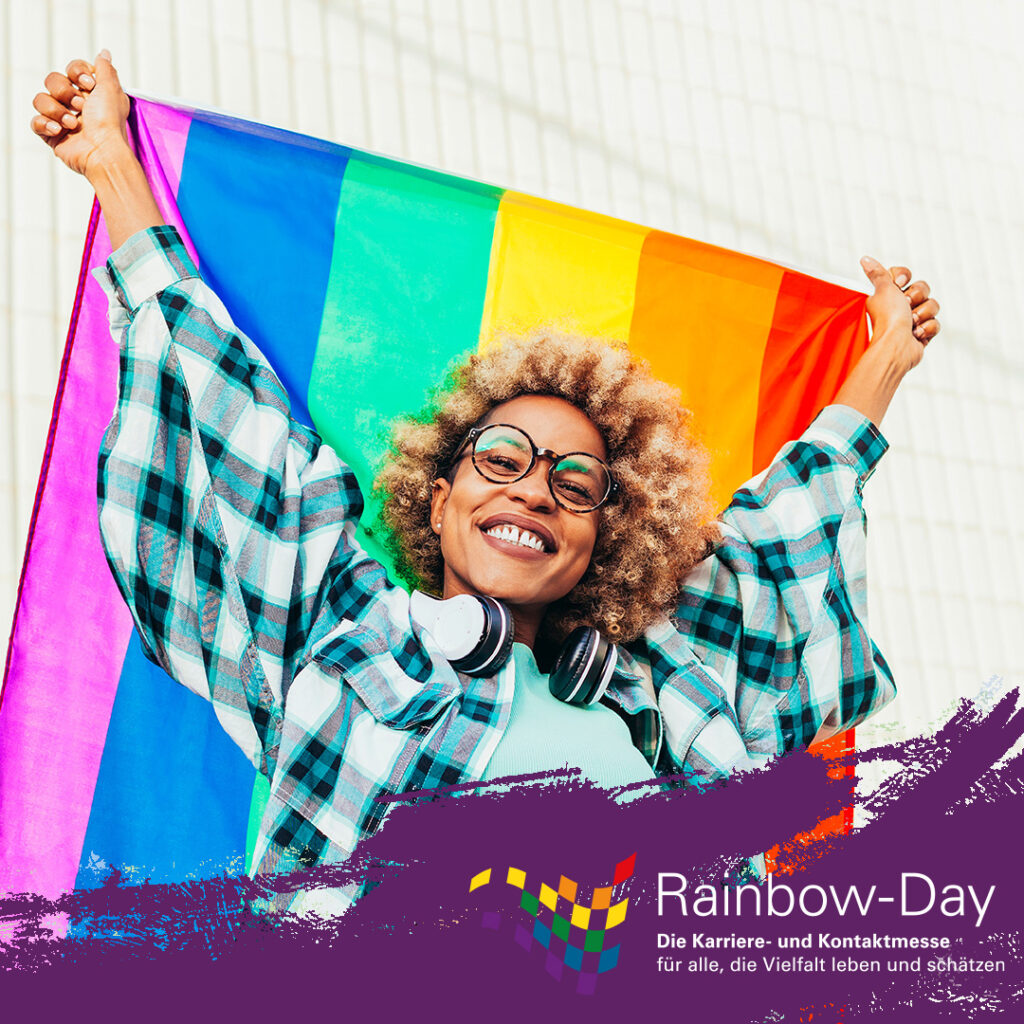
After Rainbow Day 2023 took place for the first time at Goethe University in Frankfurt am Main, the queer career and contact fair also stopped in several cities in 2024 – including Munich and Frankfurt am Main. PROUT AT WORK was also on site as part of a partnership and gave a presentation on queer diversity in the workplace.
The career and contact fair for queer students and job seekers offers a direct exchange and networking between companies and potential applicants, for whom queer diversity in the company is particularly important. They can explore their own career opportunities and find out what measures companies are implementing to actively promote queer diversity in the workplace.
Numerous companies took the opportunity at the Rainbow Days to present themselves as queer-friendly employers and get in touch with queer talents – including some of our PROUT EMPLOYERS, such as BMW, Freshfields, Hays, Infineon and Roland Berger.
PROUT AT WORK was represented last year at the Rainbow Days on February 6, 2024 in Munich and on July 18, 2024 in Frankfurt am Main as well as this year on January 31 in Munich with an information stand and provided input on stage.
young queers iN THE WORKPLACE
At the PROUT AT WORK stand, both interested companies and job seekers were able to find out more about the topic of queer diversity in the workplace and get in touch with the foundation. Enea Cocco, speaker and Project Lead Pride Day Germany at PROUT AT WORK, gave a presentation on stage about queer diversity and coming out in the workplace, providing numerous business cases and statistics as well as arguments for why employers should ensure that queer people find an environment in which coming out is possible. In a panel on the topic of “Young queers in the workplace”, the participants looked at the future topic from different perspectives and identified individual barriers and obstacles.
Many young professionals run the risk of deciding not to come out at work after all, despite their openness during their studies. Queer career fairs such as Rainbow Day show students that they can also be open about their sexual orientation and/or gender identity in the workplace and that companies can benefit from diversity.
PROUT AT WORK plans to participate in the Rainbow Days again next year, including on July 1, 2025 in Frankfurt am Main, to be a visible point of contact for queer diversity in the workplace for both companies and students. We look forward to seeing many of you there!
Impressions Munich
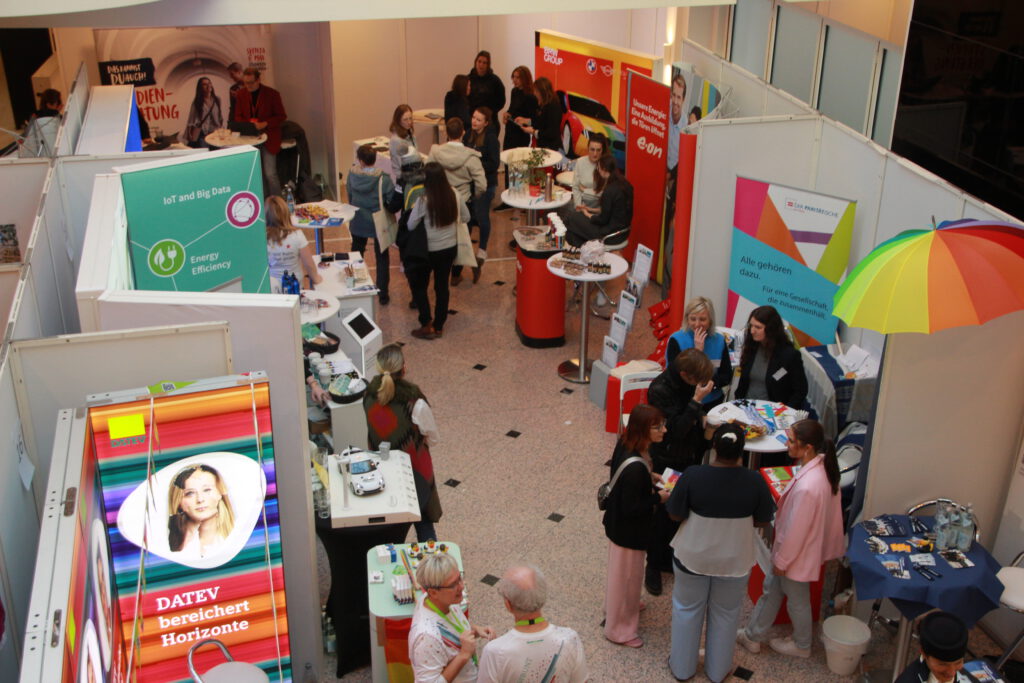
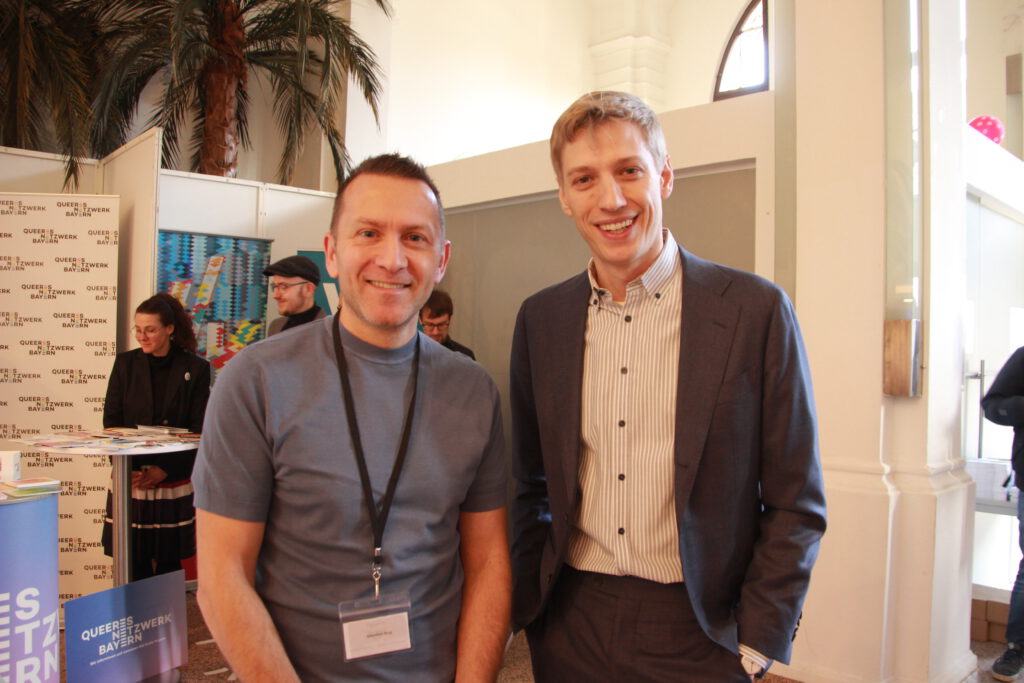
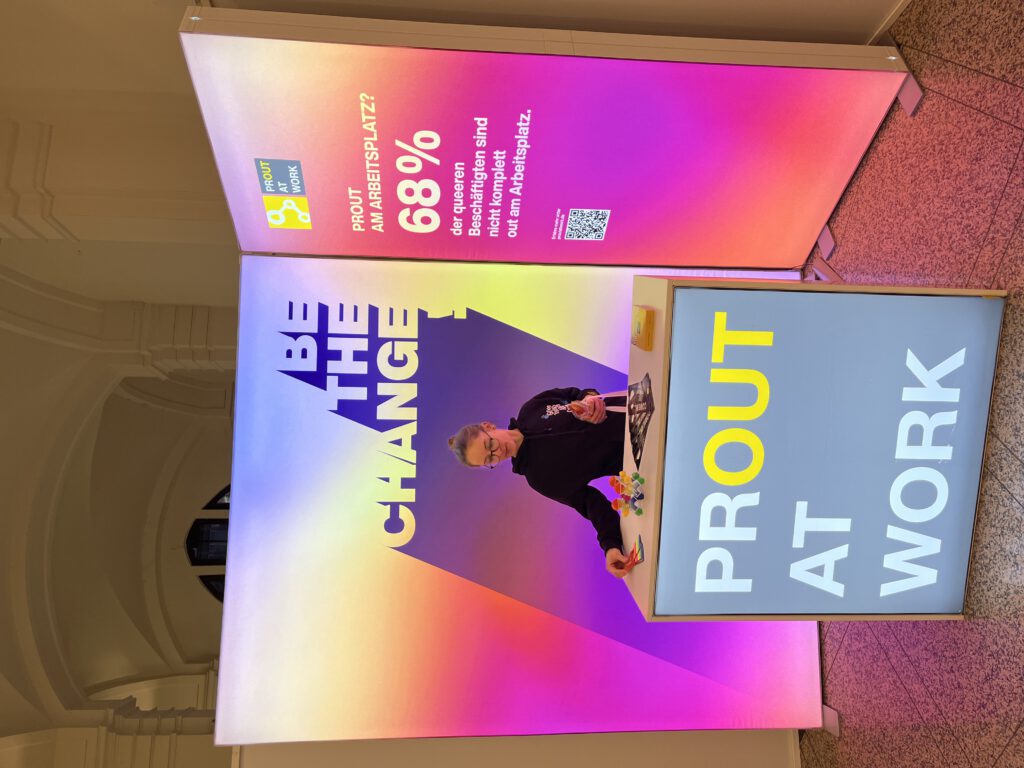
Impressions Frankfurt am Main
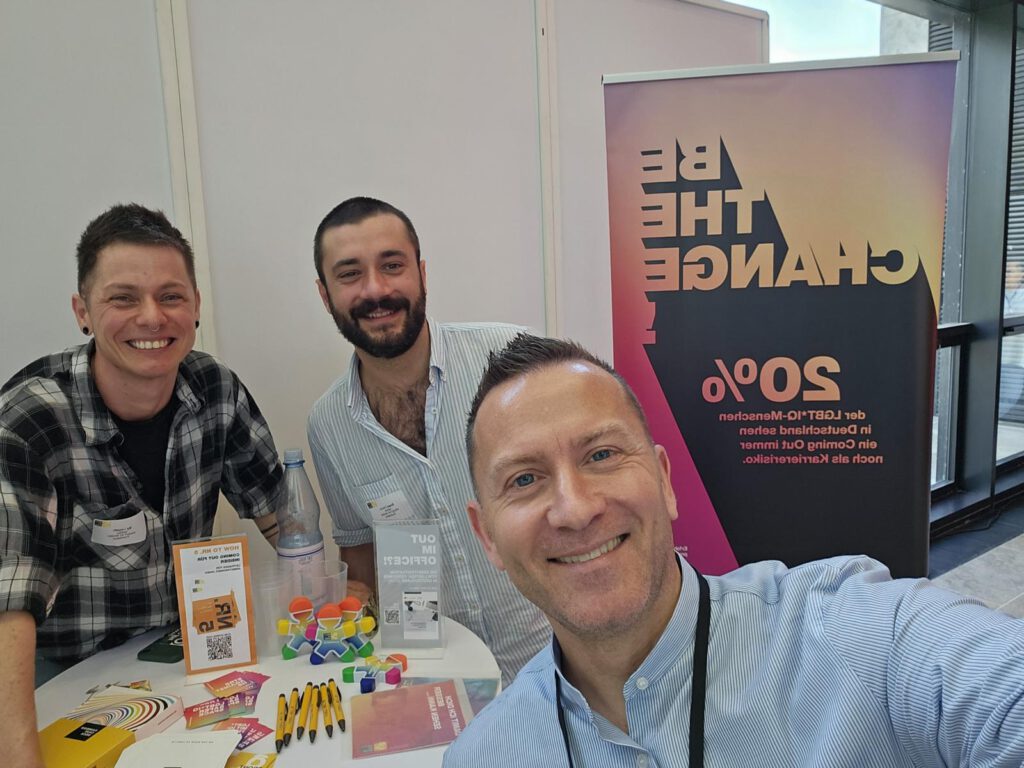
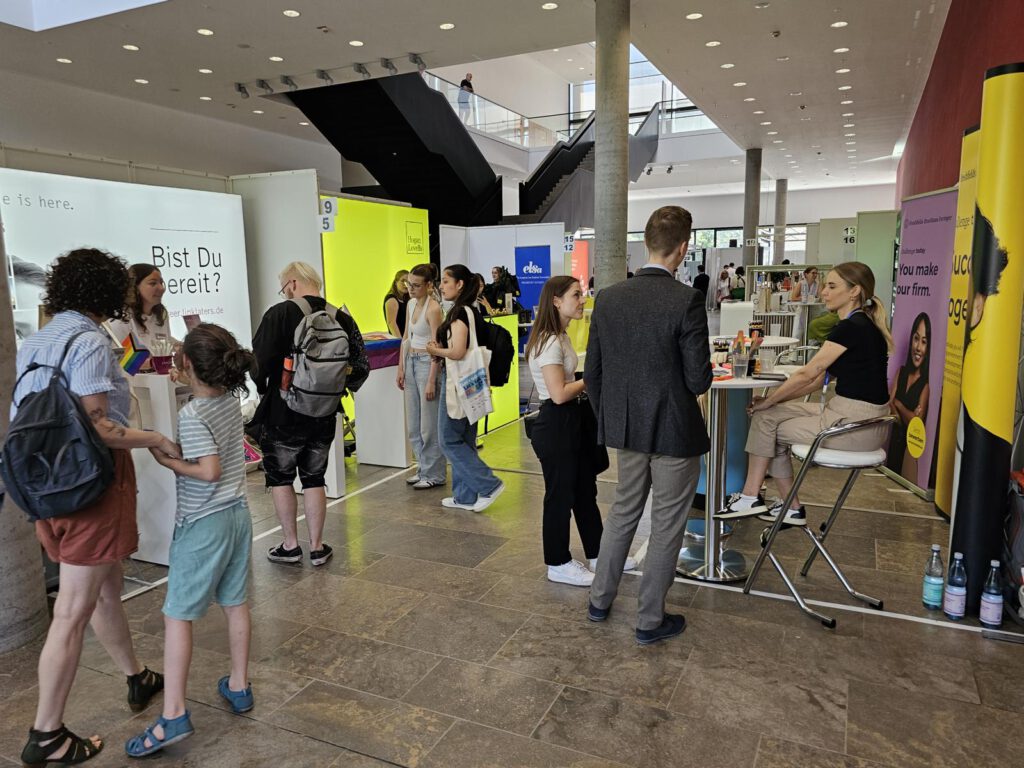
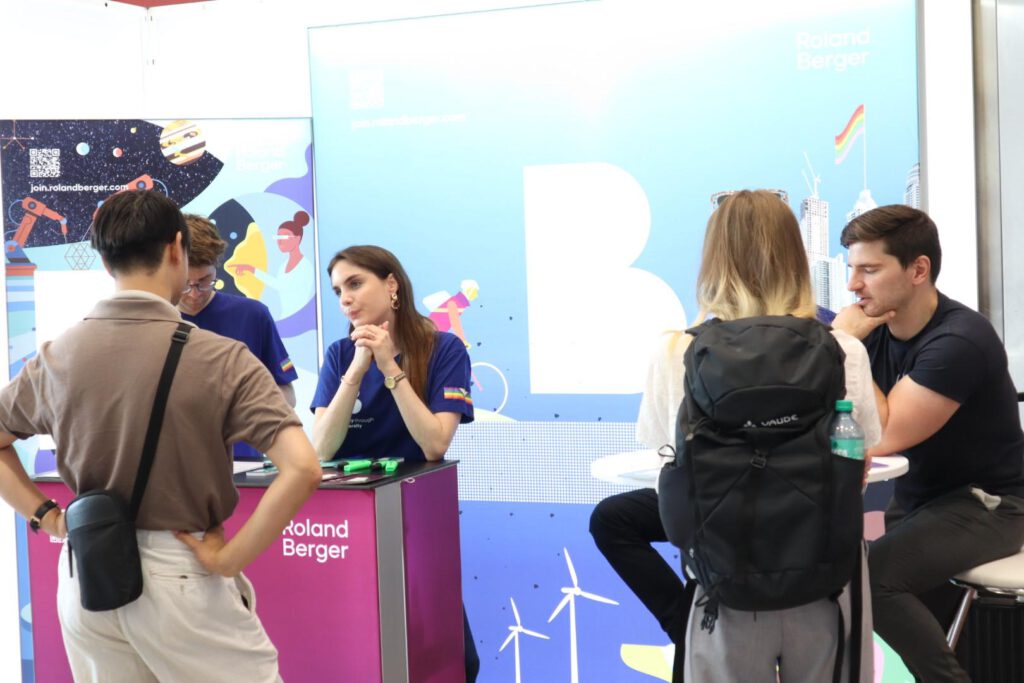
In 2024, the PROUT AT WORK-Foundation presented the Queer Network Awards for the seventh time, honoring dedicated networkers. On the evening of the first conference day, five networks were recognized in the categories of Big Impact Initiative, Rising Star, Global Leader Network, and Sustainability.
Additionally, a special award was introduced for the first time, acknowledging the efforts of a queer network that achieved remarkable work and significant media attention but didn’t fit into the existing award categories, as it doesn’t operate as a traditional corporate network.
BIG IMPACT INITIATIVE AWARD:
rewe group dito
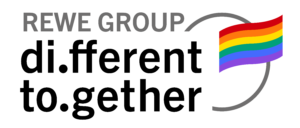
This year, REWE Group DITO received the award in the BIG IMPACT INITIATIVE category. Together with its network mentor and CEO Lionel Souque, the network initiated and internally implemented a comprehensive online training course on the topic of “Queer Diversity”. Among other things, the focus was on dealing with gender identity and sexual orientation in the workplace. The training is available in the learning catalog for all employees for an indefinite period of time and is therefore firmly anchored in the Group for the long term. In addition to queer diversity and inclusion, further training courses on other dimensions of diversity are planned for the future.
RISING STAR AWARD:
proud – novelis
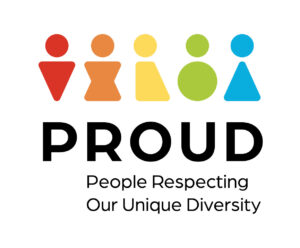
The PROUD network from Novelis will receive the RISING STAR award this year. The network was founded in Europe in 2022 and has been supported by 15 allies in the European plants since last year. In addition to initial events, such as participation in three Pride events in 2023, the network has started to take targeted action at Novelis plants in its second year. The network in Europe has inspired and motivated the regions of North and South America to also establish an LGBT*IQ network. PROUD in Europe is organized by a core team of four people and supported by the sponsor – the Vice President HR of Novelis Europe.
GLOBAL LEADER NETWORK AWARD:
equal at mckinsey
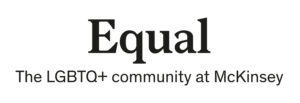
The GLOBAL LEADER NETWORK award is presented to the Equal at McKinsey network, which celebrates its 30th anniversary next year and has grown significantly in recent years. There are more than 14,000 Inclusion Allies worldwide who are committed to promoting queer issues within the company. McKinsey has a global strategy to actively promote the network in all offices around the world. The company has queer leaders in offices around the world, including China, Chile, France, Germany, Poland, Singapore, the United States, the United Kingdom, Canada, the Netherlands and South Africa. They act as role models in the company and play their part in increasing the visibility of queer people and content in the company.
sustainability AWARD:
arco by commerzbank
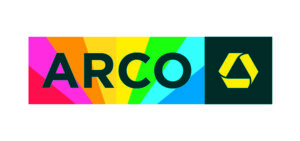
ARCO, Commerzbank’s Pride network, receives the SUSTAINABILITY Award from the PROUT AT WORK Foundation. For over 20 years, the employee network has been committed to breaking down prejudices and promoting mutual acceptance at all levels within the company. With regular events and publications, ARCO raises awareness of queer issues and creates a working environment in which all employees can be who they are. An Executive Ally program involves managers in all segments as supporters of queer people. The Executive Board has also supported the network, which is being continuously expanded, since it was founded in 2002. This gives ARCO a pioneering role for queer employee networks in Germany.
special award:
#outinchurch e.V.
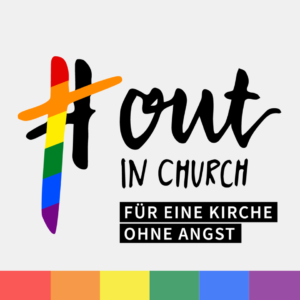
This year’s special award goes to #OutInChurch e.V. The campaign – initiated by full-time, voluntary, potential and former employees of the Roman Catholic Church – was launched in January 2022 and is still helping to make queer people visible in the church and give their concerns a voice. The strategic goal of #OutInChurch was to expose abuses in the Catholic Church and to initiate necessary reforms that would make the Catholic Church a place free of discrimination. A secondary condition for this was the protection of the individual by creating publicity. This was successful: due to the relatively high number of participants, there have been no consequences under employment law to date. Catholic employment law was amended in the fall of 2022 so that a queer identity and a queer relationship are no longer grounds for dismissal. Public pressure on the Catholic Church, which was already high for many other reasons, was increased once again and implicitly called on its representatives to take a stand.
Follow us on Social Media!
Instagram: https://www.instagram.com/proutatwork/
LinkedIn: https://www.linkedin.com/company/proutatwork/
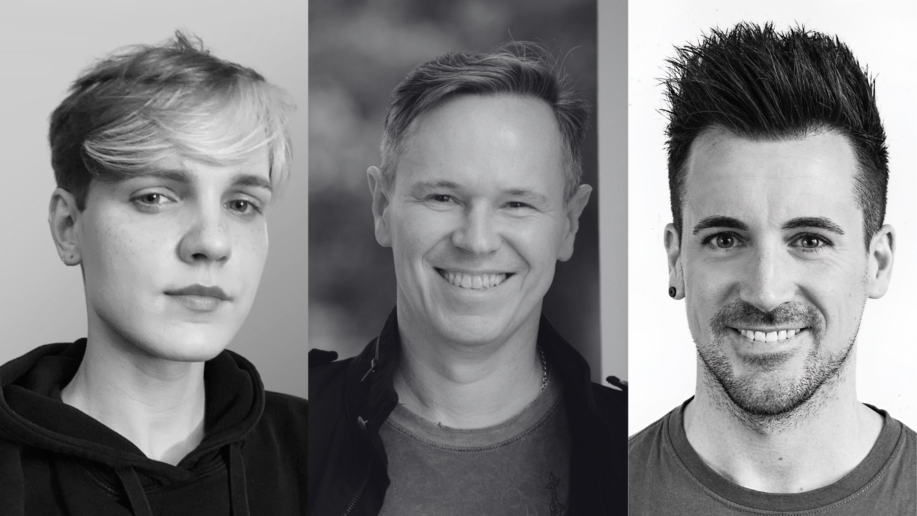
A talk with… Leon Wiersch, Detlev Blenk and
Christian Lemkens
PROUT AMPLIFIER
As part of our PROUT AMPLIFIER project, we not only talk to outstanding PROUT PERFORMERS, but also to committed people who are not yet heard as much, but who do at least as important work for queer diversity in the company. Detlev Blenk, Diversity and Inclusion Manager at IKEA, introduces us to his colleagues Christian Lemkens and Leon Wiersch, who are driving forward exemplary work for queer diversity and equal opportunities in the workplace, particularly in their areas of responsibility. We spoke to them about their commitment at IKEA and their motivation behind it.
How important are diversity and queer friendliness in your
company?
Detlev: The retail sector in general employs an above-average number of queer people, and it’s the same at IKEA. Based on global surveys, we assume a figure of 10 to 13%. This large figure alone places a special focus on our diversity and inclusion activities. Our credo: All people should be allowed to be who they are at IKEA – regardless of age, origin, gender, sexual or gender identity and physical or mental abilities.
What values characterize your day-to-day work and how are
they lived?
Detlev: The culture at IKEA is very much determined by our values. These have their origins in Sweden and characterize our interactions, our encounters with customers, applicants and suppliers.
What makes Leon and Chris role models and why exactly should
their perspectives be heard and seen?
Detlev: I thought it was a great idea not to focus on the usual faces from the upper echelons of management, but to give a voice to those who do and achieve so much for the queer community in the company, at queer fairs or other events. Leon and Chris are two of many colleagues who are passionately involved either locally in an IKEA store or as a member of the network management of our queer employee network.
Is there a special moment (or a joint project/current
collaboration) with them that you would like to tell us about?
Detlev: Chris almost single-handedly managed the operational side of our national participation in the CSDs in Berlin and Cologne and motivated our colleagues on the trucks with a passion for a colorful and diverse world. Leon is a big driver of diversity and inclusion for his IKEA store and brings a lot of ideas to the table.
As an established PROUT PERFORMER, what can you learn from
your colleagues? Perhaps especially from younger ones or from
those from completely different fields of activity? Where does
it make sense to work together (even more closely)?
Detlev: We learn a lot from each other. As a gay man in my mid-fifties, I’ve had different experiences in life than Chris and Leon. Their queer experiences are broader and not just focused on the “G” in LGBTQIA+. I’m always happy to learn more. And, of course, they are much more relaxed than I am about getting through nine hours on a CSD truck. Everyone contributes here with their possibilities and experiences – in the spirit of IKEA: “You do your part, we do our part, together we create a better world for the many people”.
What job do you currently do at IKEA and how long have you been with the company?
Christian: I’ve been with the company for almost exactly 15 years now. Since February as IKEA for Business Country Specialist. In this role, I work closely with various interfaces (e.g. Marketing or Customer Fulfillment, but also the local stores) and implement the business strategy and corporate goals together with my colleagues.
Leon: I am also celebrating a small anniversary. I’ve been on board for two years. I originally studied product design. I’m now working as a visual merchandiser (Communication and Interior Design), which is more or less my entry-level job. Roughly speaking, that means I’m partly responsible for making IKEA look like IKEA.
„As a gay man in my mid-fifties, I’ve had different experiences in life than Chris and Leon. Their queer experiences are broader and not just focused on the “G” in LGBTQIA+.“
How do you experience being queer at work? Is it an issue that is
relevant in everyday life? If so, in what contexts/situations?
Christian: Our day-to-day work is characterized by diversity and values. I have the full support of my direct manager and our country management. I can’t pin it down to specific situations, as it’s completely normal for us to be who we want to be.
Leon: In fact, the topic is not that important to me. Our interactions are relaxed and friendly. The fact that everyone is on first-name terms, openly “shows their colors” and there is an open feedback culture helps a lot. Of course, colleagues ask questions from time to time. Not in an intrusive way, but out of genuine interest. But then you also have the opportunity to be an educator – I really like that.
Were/are there any challenges (in general/for you personally)
when it comes to “out at work”? How do you overcome them?
Christian: I dealt with the issue openly right from the start and therefore never experienced any rejection. However, not all colleagues seem to feel the same way. At an information event for allies, almost 10% of participants answered the question “Would your colleagues react positively if you introduced them to your (same-sex) partner?” with “No.” answered “No”. And half are afraid that they would be ostracized or ridiculed because of this. This is definitely a sign that we still have a lot of educational work ahead of us.
Leon: I think for many people, coming out internally is the hardest part. Before you come out, you first have to understand for yourself that you don’t need to be ashamed of things. In the end, in many cases you hold the key to your own cage in your own hands.
If there was one thing you could wish for in this context, what
would it be?
Christian: I would really like no one to have to justify or be ashamed of their own identity. Everyone should live the way they want to. Actually, I would also like us not to have to talk about such topics at all. It should be normal by now. Until it is, I will definitely continue to fight for it.
Leon: Every coming out helps to break with stereotypes. Of course, the decision to do so should be up to each individual. Queerness is super broad – a spectrum. And many parts of it are totally underrepresented. I hope we all have the courage to move freely along this spectrum and allow change.
„Queerness is super broad – a spectrum. And many parts of it are totally underrepresented. I wish us all the courage to move freely along this spectrum and allow change to happen.“
How are you committed to queer issues at IKEA? What are you
particularly proud of?
Christian: I put my heart and soul into our Pride network and it makes me very proud to be able to show that we respect and value all people in their diversity. We try to create visibility for our issues and advocate for more tolerance and understanding in our dealings with one another. Since the network has been managed from the German head office, the local stores are increasingly following suit and setting up local diversity groups. This is a great development that we are naturally happy to support.
Leon: I can get straight to the point. After my first participation in the CSD, I really wanted to take the spirit back to Wuppertal and get involved in a local diversity group. The idea is great, but the implementation – i.e. founding and organizing it – is not that easy. The network – especially Detlev – gave us great support and helpful tips. From the next financial year, a local diversity group will actually be firmly anchored in every store.
Is there a special action/project/progress you would like to talk about?
Christian: What I am very pleased about is that we reactivated our Pride network last year. There are a lot more activities taking place again in our units on the topic of diversity in the workplace and we took part in the CSDs in Cologne and Berlin. There used to be a Pride group many years ago, but unfortunately the work “fell asleep” at some point. Now we’re back and louder than ever. With the start of our new financial year in September, I am part of the national management of our Pride network and already have lots of great ideas on how we can make the topic more visible and also get our customers involved.
What is important in the job so that queer (network) work can
succeed?
Christian: The mindset! And the support from our units and allies. We have over 22,000 employees in Germany alone. It’s not possible for just five people in a Pride network group to drive the issue forward and make it visible. We need allies who give us self-confidence and back us up.
Leon: Talk a lot and show genuine interest. Good and comprehensive communication is the be-all and end-all. This increases everyone’s chances of really being heard.
How important is it to be “out” at work? Is this equally possible
for all colleagues?
Leon: Every coming out – no matter where – makes the world a better place, ensures more visibility and is usually an incredibly great liberation for you too. Once you have come out internally and decide to do so externally, it is of course super important that the working environment also offers a safe space for diversity.
How important are role models in this context?
Leon: I myself could have benefited greatly from role models in the past. In fact, everyone seemed to know what was wrong with me before I knew it myself. As a child, I was always picked on because of this. Now my tactic is maximum transparency. The more open I am about my identity, the less of a target it is. At the same time, I am also very motivated to be a role model for others and to support people as a result. That gives me a lot in return.
„Every coming out – no matter where – makes the world a better place, ensures more visibility and is usually also an incredibly great liberation for oneself.“
Who or what has encouraged you on your path?
Christian: The question immediately brought tears to my eyes because it reminded me of my coming out to my mother and grandmother. My mother reacted pretty cool and asked me when we would finally go shopping together. It was a bit more difficult with my grandmother – she was very conservative about the subject (at the time). I was afraid to tell her and kept it a secret for many years. At some point, it came out by chance and I was very worried. I was all the more surprised and relieved when I was finally able to tell her and she sat on the couch knitting socks and said: “You’re my grandson, you always will be and I love you just the way you are.” From that moment on, I felt incredibly strong and had all the support I needed to go my own way with confidence.
Allyship: What makes a good ally?
Leon: Good allies listen and support. They look inwards and work on their own prejudices. In general, I think it’s very important for allies to be willing to learn and try to understand each other – and not just in a queer context. My best friends, for example, are PoC and unfortunately experience insults and discrimination time and again in everyday life. We all think it’s really nice when another person stands up for us (even if we’re not in the room ourselves, for example). But it’s just as nice when you can give something back.
Are you also active/engaged in queer contexts outside of work?
Leon: I engage in everyday conversations with friends and acquaintances. In my design degree, I wrote a thesis on binary-gendered product language that documents, exposes and criticizes the deliberate gendering of consumer goods. There are examples of this in everything from shampoo bottles to razors, sweets, teas, etc. – actually in every area. Even barbecue sausages and stationery were clearly ascribed to a binary gender by the product language and advertised exclusively for a single gender. I’m really glad that IKEA is making an effort to be neutral in this respect and refrains from stocking products only for men OR only for women. I also found it exciting that I was able to take part in “Verqueerte Identitäten” (a master’s thesis about the experiences of genderfluid people) and share my experiences and development as a non-binary person.
What are your plans/wishes/goals for the future? What are you looking forward to?
Christian: I am looking forward to the intensive networking work. I have a personal urge to get more involved, especially as certain groups are getting louder and louder. If the “right” is getting louder, so must we. My wish is that one day we will live in a society where everyone is happy and can simply be who they want to be!
Leon: I want even more visibility in the store. I want to get to know more perspectives, experience more “colorfulness” and, above all, learn more about other communities that I have had less contact with so far. Because that’s exactly how we can learn, develop and change.
Detlev, Christian and Leon, thank you very much for the
interview!
Find out more about our PROUT AMPLIFIER project here.
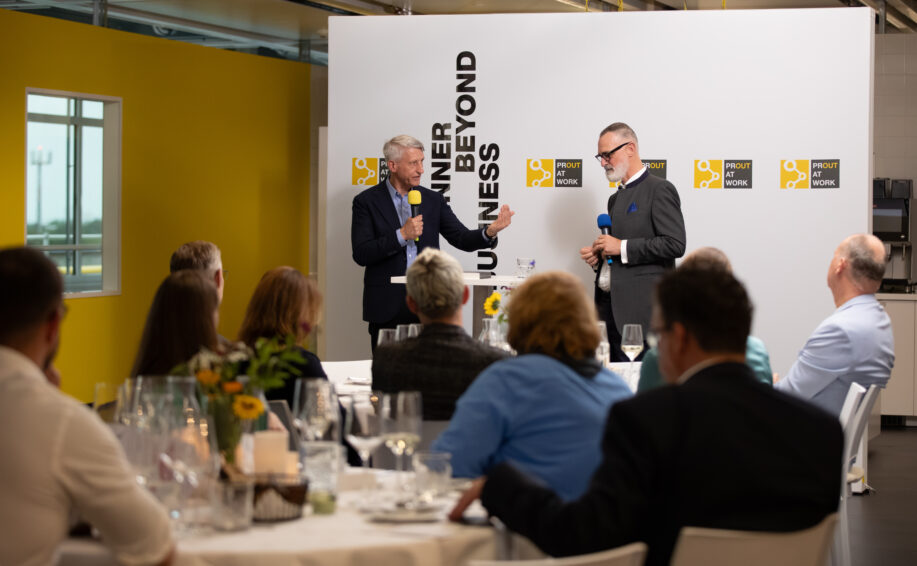
Sander van’t Noordende
“SENIOR LEADERS AND CEOS IN PARTICULAR MUST STAND UP AND SHOW THEIR SUPPORT, BECAUSE THEY ARE THE FOCUS OF THE COMPANY AND ACT AS ROLE MODELS.”
Queer equal opportunities will continue to be an important topic in 2024 – especially in times when we are seeing an increase in queer-hostile activities. It is important for individuals, who are thus gaining more and more freedom to live their authentic selves in the workplace, and just as important for companies that offer their employees an appreciative environment.
Albert Kehrer, CEO of PROUT AT WORK, also emphasized in his opening speech why queer diversity in the workplace is so important: “Queer diversity is considered an indicator of an open and inclusive corporate culture.”
At the PROUT AT WORK Foundation’s 7th DINNER BEYOND BUSINESS, the focus was on the commitment of companies and managers to queer employees: “In times when hatred, hate speech and crime against queer people are on the rise again, IKEA is standing up as an ally and strong supporter. We have a zero-tolerance policy for attacks on queer people inside and outside the company. I am pleased and proud that many people from the queer community find their professional home at IKEA,” says Walter Kadnar, Country Retail Manager & CSO IKEA Germany. The invitation to DINNER BEYOND BUSINESS 2024 was accepted by over 50 senior executives from major companies and institutions, including representatives from Accenture, Boehringer Ingelheim, Commerzbank, congstar, Disney, Ergo, Infineon, KPMG, Novelis, Oracle, OTTO, PwC and Siemens. The participants of the top-class networking event enjoyed an exclusive dinner at the IKEA headquarters in Hofheim am Taunus. Albert Kehrer explained the background to DINNER BEYOND BUSINESS in his welcoming speech: “Behind a manager there is always a personal story that has an impact on performance in the workplace. That’s why we invited people to DINNER BEYOND BUSINESS 2024 to find out more about the queer side of business. Supporting queer people in the workplace is much more than just supporting a marginalized group.” The highlight of the evening was the Fireside Chat by Albert Kehrer together with Sander van’t Noordende, CEO of Randstad, about role models, coming out at work and allyship.
“For us at Randstad, our ultimate goal is for everyone to feel comfortable at work.”
Sander van’t Noordende has been Chief Executive Officer and Chairman of the Board at Randstad since March 2022 and is one of the only openly gay CEOs among the Fortune 500. Sander spent most of his career at Accenture, where he held a number of leadership positions. During his successful three decades at Accenture, he served as Group Chief Executive of the Products Operating Group. Sander advocates for the importance of DEI&B in the workplace at international events, including at the World Economic Forum in Davos with discussions on inclusion and the rights of queer people.
“All employees should have the same opportunities – but that also means that we have to organize our processes and those of our customers accordingly.”
At the beginning of the Fireside Chat, Sander van’t Noordende shared some private insights as an out executive: “I come from a very diverse family: I have two gay uncles and two lesbian aunts, which has always been the most normal thing in the world for me. But a diverse family doesn’t automatically mean it’s easy to come out as gay.” His role model has always been his gay uncle, who showed him that you can also be successful at work as a gay man. “For us at Randstad, our ultimate goal is for everyone to feel comfortable at work. All employees should have the same opportunities – but that also means that we have to organize our processes and those of our customers accordingly.” He is also convinced that companies need to position themselves on certain issues: “Senior leaders and CEOs in particular need to stand up and show their support, because they are the focus of the company and act as role models.”
recording of the talk with sander van’t noordende
PROUT AMPLIFIER EDITION
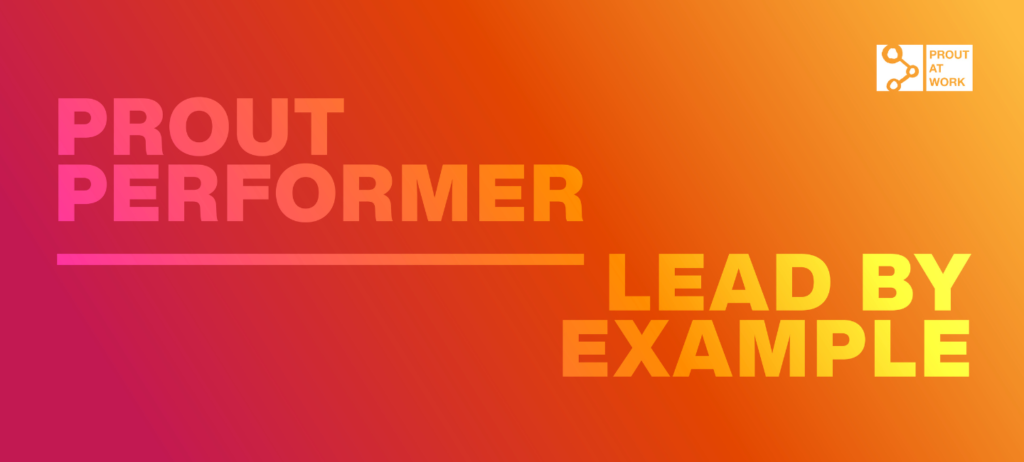
Diversity! But sustainable
On May 13, 2024, we were guests at one100 – the Randstad head office – in Eschborn. Despite spring thunderstorms over Frankfurt, we welcomed around 40 networkers to the first PROUT PERFORMER Networking Event 2024.
In an on-stage discussion with PROUT AT WORK board member Albert Kehrer, Frank Münze (Head of Talent & EDI&B), Carlotta Köster-Brons (Head of the Capital Office, National CSR Coordinator) and Bettina Desch (External Communications Expert) provided insights into the sustainability and EDI&B strategy at Randstad from various perspectives.
Afterwards, the guests had the opportunity – with a cool drink and a delicious snack in hand – to continue the exchange, talk about the challenges and opportunities of diversity work and share best practices from their own work contexts. Absolutely added value for the participants and super interesting for us too.
We were also very impressed by the guided tours of the impressive head office, where New Work is practiced in many different ways, from a flexible workplace to a fitness studio and a parent-child room, in order to meet the needs and requirements of employees in their day-to-day work.
Many thanks to all visitors, our hosts, co-organizers and the Randstad Pride BRG for their active support on site.
Impressions
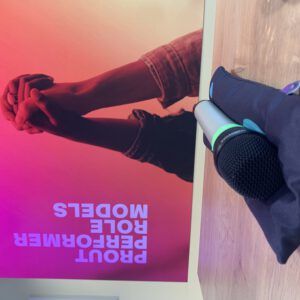
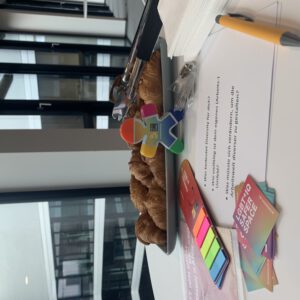
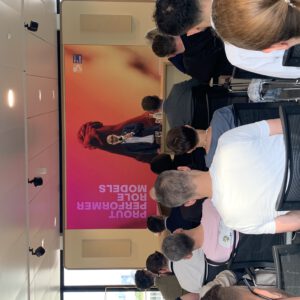
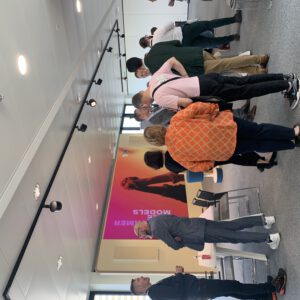
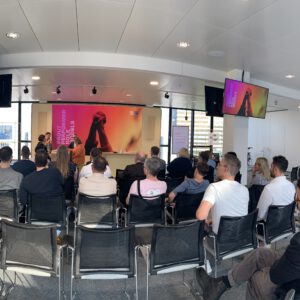
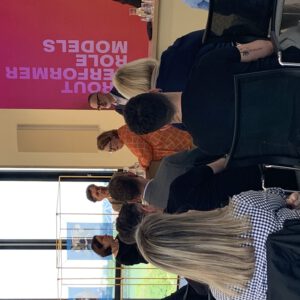
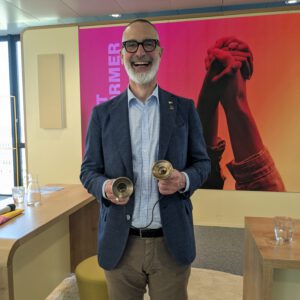
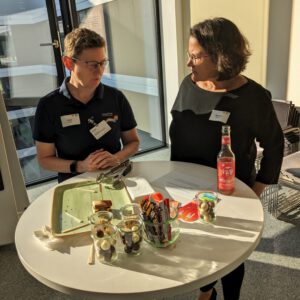
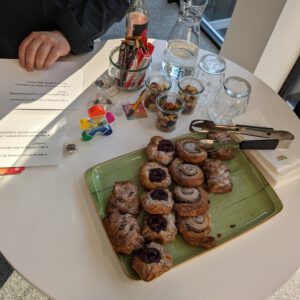
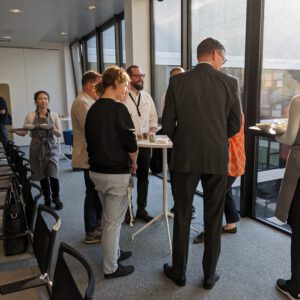
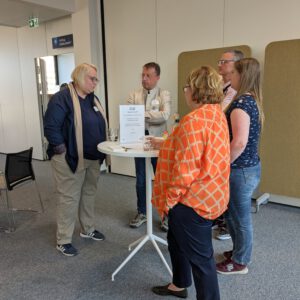
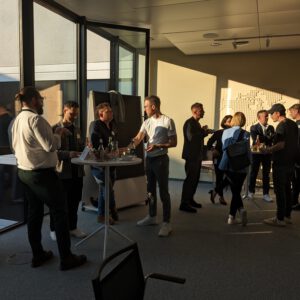
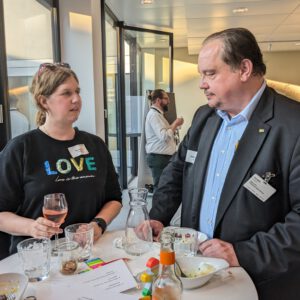
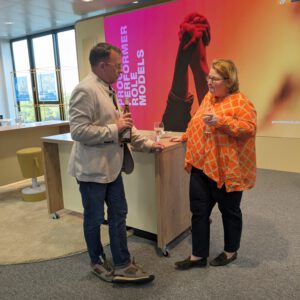
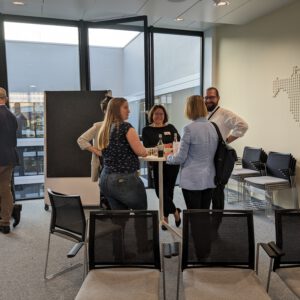
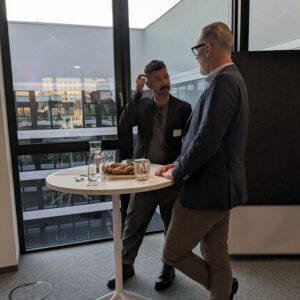
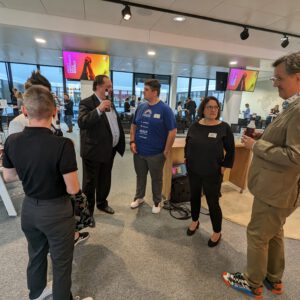
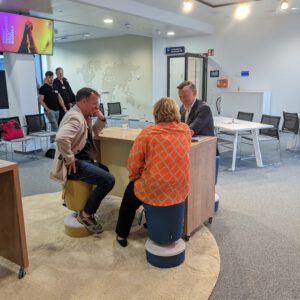
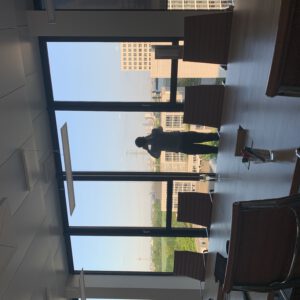
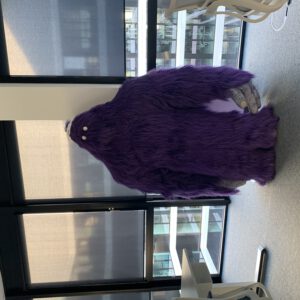
Kindly supported by
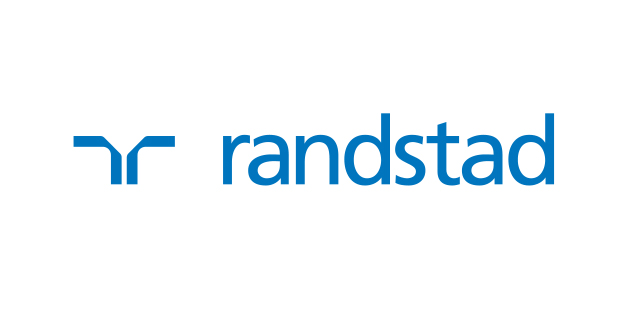
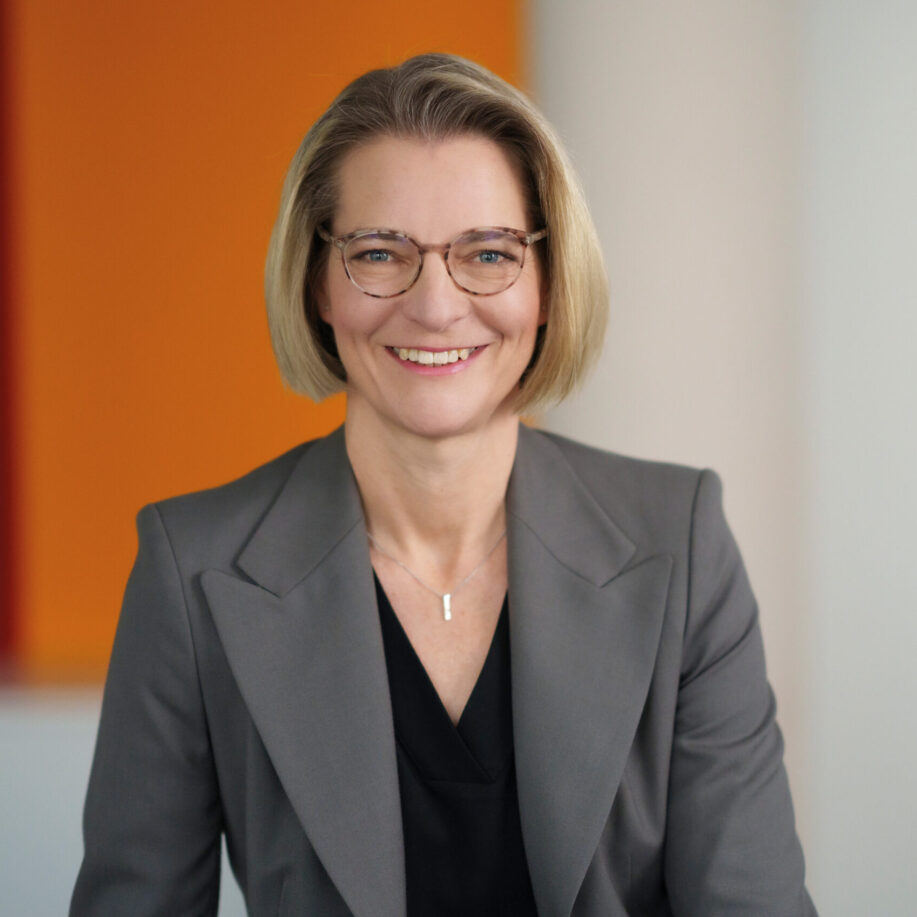
PROUT EMPLOYER BASF
„As long as we have not yet managed to create these conditions in the world of work and society for everyone, we will miss out on opportunities and not use our full potential.“
Katja Scharpwinkel was born in Hagen in 1969. She studied chemistry at the University of Münster and received her diploma in 1994, followed by her doctorate in 1996.
As a member of the Executive Board, she is responsible for European Site & Verbund Management; Global Engineering Services; Corporate Environmental Protection, Health, Safety & Quality and the Europe, Middle East, Africa region.
WHAT DOES IT MEAN FOR YOU AS SITE MANAGER FOR THE LUDWIGSHAFEN
SITE TO STAND UP FOR MORE QUEER DIVERSITY AND VISIBILITY?
Dr. Katja Scharpwinkel: In my role as site manager, it is my job to bring the team at the site together. With the challenges of the present and future, it is important that we are motivated and, above all, united in working towards our goals. This is only possible if no one has to struggle with reservations or artificial barriers. This applies not only in Ludwigshafen, but also in our private lives. An important step in breaking down reservations is exchanging ideas and getting to know each other. I want to help drive this forward – and I know that I am not alone in this, but have many committed people at my side – at BASF and in the PROUT AT WORK network.
WHAT DO YOU THINK OF THE STATEMENT THAT FROM NOW
ON MORE IMPORTANT ISSUES THAN QUEER DIVERSITY?
Dr. Katja Scharpwinkel: I think there is no point in weighing up issues that move and shape society against each other. We shouldn’t put climate protection and the necessary (energy) transformation on the back burner because of a pandemic or the wars in Ukraine and Gaza.
And so queer diversity remains as relevant as ever. For me, it also stands for tolerance, cohesion and humanity. These values are the basis of our coexistence in a democracy – we must protect them no matter what. Anything else would be a big step backwards for our society.
WHY IS IT A MATTER CLOSE TO YOUR HEART TO
SUPPORT QUEER DIVERSITY?
Dr. Katja Scharpwinkel: Like most people, I want to work in a company where I can be who I am. Only then can I be motivated and have fun, only then can and will I contribute my best. As long as we have not yet managed to create these conditions in the world of work and society for everyone, we will miss out on opportunities and not use our full potential. This is a situation that has been unacceptable not just since the skills shortage. That is why I am committed to diversity in both my private and professional life.
Dear Katja, thank you very much for the interview!
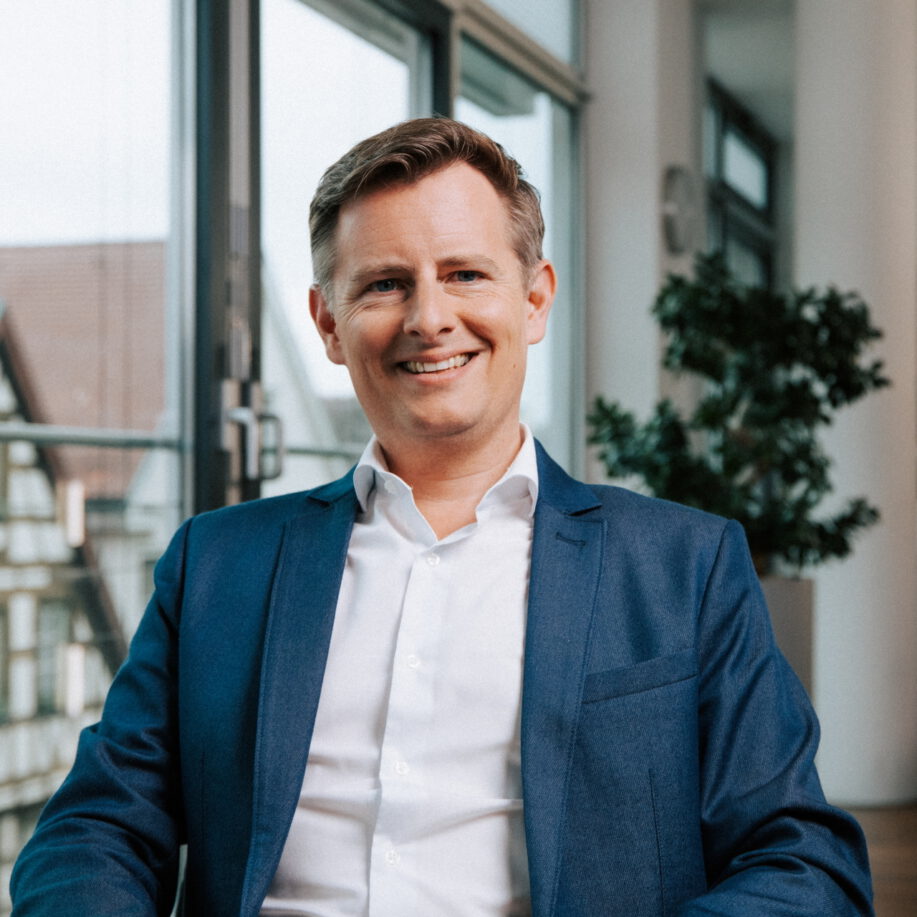
PROUT EMPLOYER BCG PLATINION
„By embracing diversity, we not only enrich our organizational culture but also drive innovation and creativity.“
Matthias Burghardt is an Associate Director at BCG Platinion and supports financial service providers in Central Europe with digital transformations. He studied Information Engineering and Management in Karlsruhe and earned a PhD in Business. Matthias heads the DE&I (Diversity, Equity & Inclusion) activities at BCG Platinion in Central Europe as well as the LGBTQ+ network Pride @ BCG Platinion in EMESA where all activities of the Pride members and allies are coordinated.
You were immediately willing to do a joint interview –
thank you again! Why is it a matter close to your heart or a
concern for you to support queer people in the workplace?
Matthias Burghardt: Supporting queer people in the workplace is crucial for me because it fosters a truly inclusive and respectful environment where every individual can thrive. By embracing diversity, we not only enrich our organizational culture but also drive innovation and creativity. It reflects a commitment to equality and human rights, ensuring that everyone, regardless of their sexual orientation or gender identity, has equal opportunities to succeed and contribute to our collective success.
Which initiatives regarding equal opportunities for queer
people in the workplace are you pursuing within your company?
Matthias Burghardt: We are committed to fostering equal opportunities for queer employees through a multifaceted approach. We are building a diverse workforce by actively recruiting from a wide range of backgrounds and promoting an inclusive environment where everyone can bring one’s true self to work. Our initiatives are centered around our close-knit Pride members and allies, creating a “secret sauce” where everyone finds community. We are also enhancing our external communications to reflect our commitment to LGBTQ+ inclusivity.
Which role do allies play in your organization and
how do you engage them in your LGBTQ+ initiatives?
Matthias Burghardt: Allies are incredibly important for the acceptance and inclusion of LGBTQ+ individuals. Especially allies who actively and strongly advocate for queer issues are essential for LGBTQ+ people to feel fully accepted at work. We understand the importance of an inclusive atmosphere among employees, achievable only by integrating the issue into our company culture. Allyship is more than just changing the company flag on LinkedIn or hosting an annual fair. Allies are an integral part of our Pride Community.
What motivated BCG Platinion to become a PROUT EMPLOYER
and what would you like to see in our cooperation?
Matthias Burghardt: Our motivation to become a PROUT EMPLOYER stems from a deep commitment to fostering an inclusive workplace that celebrates diversity and supports the LGBTQ+ community. We aim to lead by example, promoting equality and understanding. In our cooperation, we aspire to share best practices, innovate in diversity initiatives, and create a broader impact through community engagement, advocacy, and awareness programs. Together, we can build a more inclusive world where everyone is empowered to succeed.
What advice would you give to other companies
that have not yet discovered queer diversity for themselves?
Matthias Burghardt: Embrace queer diversity as an asset. It enriches your company culture, drives innovation, and appeals to a broader customer base. Start by creating a safe, inclusive environment where all voices are heard and valued. Invest in diversity training, support LGBTQ+ employee networks, and commit to equitable policies. Learning from and partnering with organizations like PROUT AT WORK can accelerate your journey. Diversity isn’t just right; it’s smart business. Don’t get left behind.
Dear Matthias Burghardt, thank you very much for the interview!
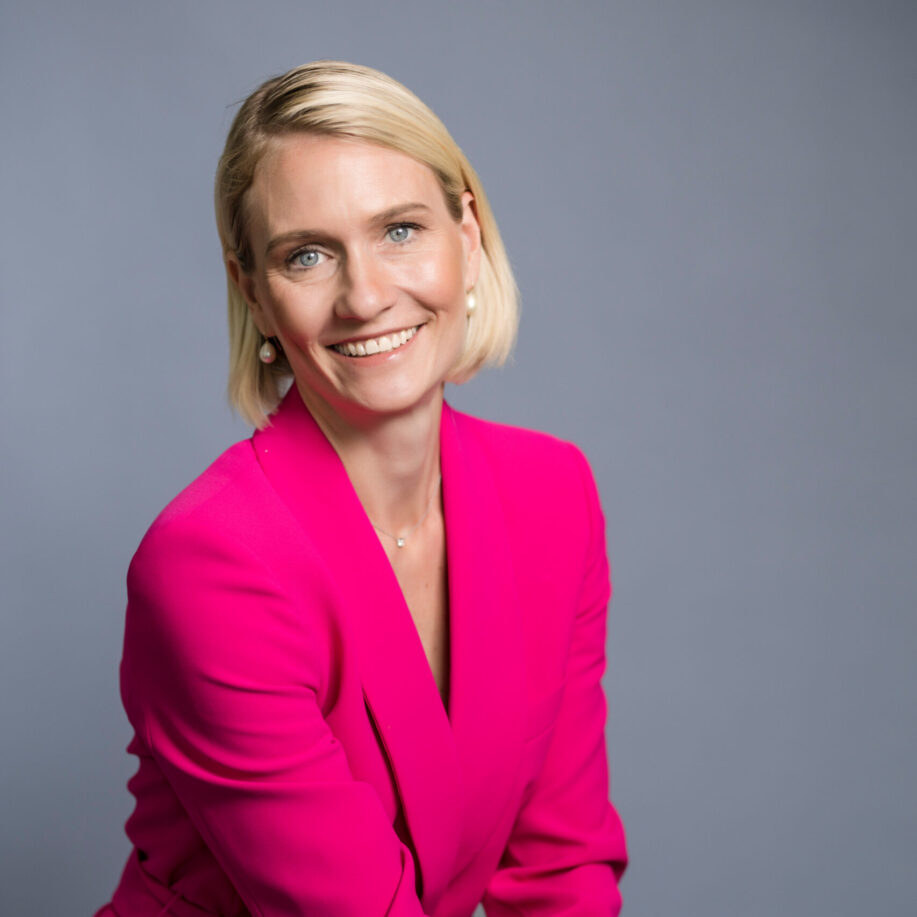
PROUT EMPLOYER Sanofi
“As a sponsor of the network, the queer community is particularly close to my heart. Neither at Sanofi nor in the rest of society can we do without diversity and talent of any sexual orientation, religion, age or origin.”
Dr. Theresa von Fugler is a biochemist, “doer” and family person. As an executive with global experience in the branded goods industry, she has been Managing Director at Sanofi Consumer Healthcare in Germany since September 2021. She is responsible for the area of over-the-counter medicines from pharmacies. This includes brands for the treatment of headaches, coughs, abdominal pain, constipation and allergies. She is a sponsor of the internal LGBT*IQ network in Germany and is particularly committed to diversity in the workplace. In her private life, Theresa is active in sports and finds variety in beekeeping.
Sanofi’s global diversity strategy is called “all in”.
What does this slogan mean to you?
Dr. Theresa von Fugler: As the name suggests, for me “all in” is a positive term for the fact that people of every dimension of diversity can develop here. Sanofi’s employees in Germany are a reflection of society – people of different backgrounds, experiences, attitudes and skin colors work here. We want to be as diverse as the patients we serve.
The equal opportunities development of all employees is part of our corporate culture and a strategic success factor. Inclusion is not a minority program. We want a working environment in which everyone feels valued and supported without any form of discrimination.
Which initiative or action on equal opportunities for
queer people at Sanofi that particularly impressed you?
Dr. Theresa von Fugler: I was fascinated by the Sanofi truck at Christopher Street Day 2023. The passion and joy with which our team took part in the CSD inspired many people to be there too. Showing our colors on this day was a clear commitment to LGBT*IQ and “all in”. Miraculously, our LGBT*IQ network has since grown to include more members. For me, this is an important message – because diversity should have a positive connotation. It’s not for nothing that an expressive and colorful symbol – the rainbow – stands for the LGBT*IQ community worldwide.
In your opinion, what are the big issues and
challenges regarding queer diversity in the
coming years?
Dr. Theresa von Fugler: The area of tension associated with LGBT*IQ diversity is particularly challenging. This affects Sanofi just as much as society as a whole. On the one hand, it is important to encourage people to embrace their uniqueness, which above all requires acceptance and a matter of course. On the other hand, there are people who are bothered by measures to strengthen LGBT*IQ diversity – regardless of whether they come into direct or indirect contact with them. This reinforces the social tension.
What motivated Sanofi to become a PROUT EMPLOYER
and what would you like to see in our cooperation?
Dr. Theresa von Fugler: When we founded our internal LGBT*IQ network “PRIDE+ DE”, it was clear to us right from the start that we wanted to bring in external support and expertise. The aim at the start was to further develop the quality of the network’s work and growth. Every network has a learning curve right from the start. With a strong partner, we wanted to avoid initial mistakes and act strategically. It is also good to network across company boundaries in order to learn from each other and strengthen each other in our day-to-day work.
What advice would you give to other companies
who have not yet discovered queer diversity for themselves?
Dr. Theresa von Fugler: As a sponsor of the network, the LGBT*IQ community is particularly close to my heart. Neither at Sanofi nor in the rest of society can we do without diversity and talent of any sexual orientation, religion, age or origin. But only when opportunities are fairly distributed can talents develop their full potential. Diverse groups help to break down barriers in people’s minds and obstacles in everyday working life.
One thing is certain for me: surrounding ourselves with diverse and different people helps us all move forward, I’m sure of that.
Dear Dr. Theresa von Fugler, thank you very much
for the interview!
